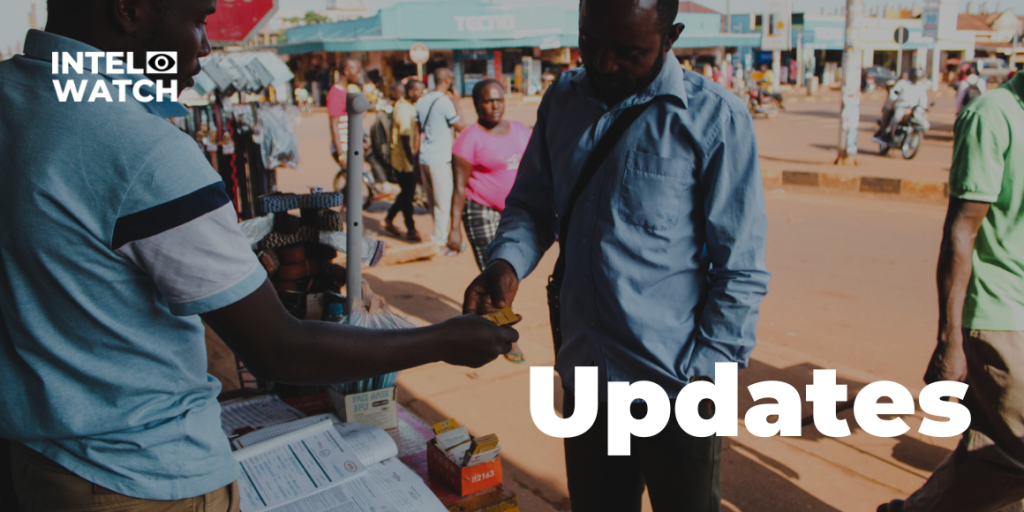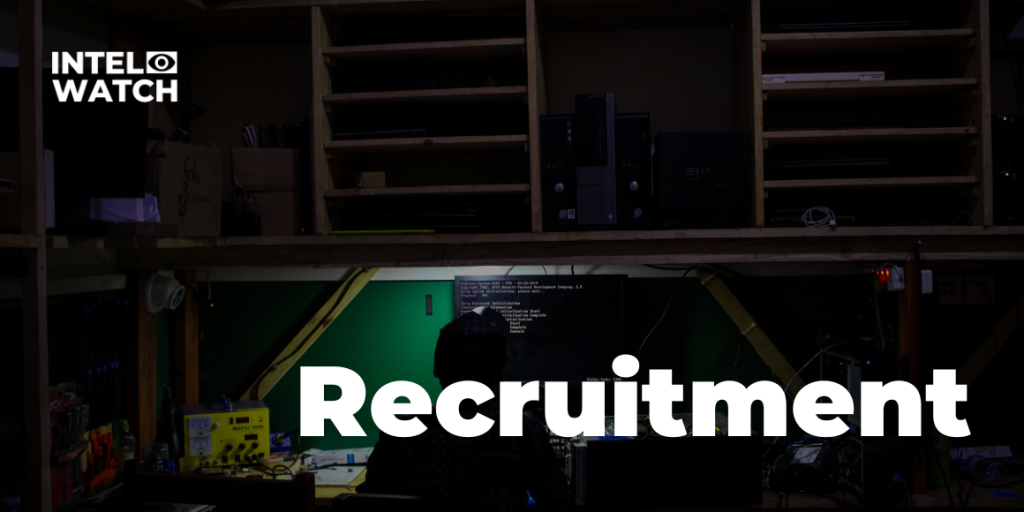Op-ed | Assassinations, fraud and intimidation mark Mozambique’s 2024 elections
This piece by Paula Cristina Roque was first published by Daily Maverick.
Mozambique’s largest observation platform comprising seven NGOs, with 1,900 observers across the country, declared that this month’s elections were fraudulent. International observers publicly questioned the credibility of the polls.
Multiple gunshots under the cover of darkness pointed to an orchestrated execution. Twenty-five bullets were shot into Elvino Dias’s body, permanently silencing a hugely respected lawyer fighting with opposition candidate Venâncio Mondlane for electoral truth and justice.
Paulo Guambe, another opposition delegate for Mondlane’s party Podemos, was also killed as two cars ambushed their vehicle in the Mozambican capital of Maputo at 23:20 on Friday, 18 October.
Minutes before his death, Dias posted a video, filmed from the very car he was assassinated in stating that they had proof of Venâncio Mondlane’s electoral victory, which would be presented to the Constitutional Court.
Earlier he had posted on Facebook that he had been informed of a meticulous plan by the “Squadrons of Death” to kill him and Mondlane and stated that “above death is the truth”.
Eyewitnesses alleged they saw the police prevent an ambulance from helping Guambe, who was still alive when it arrived at the scene of the shooting. Police also collected the shell casings, while intelligence officers took the devices of the victims, and the car was removed from the scene rapidly.
Mozambique’s democracy died decades ago when the 1999 national elections were stolen from Renamo, but now the generation selflessly trying to revive it is being killed, surveilled and silenced by lawfare, intimidation and electoral fraud.
A wave of mafia-style killings, targeting journalists, activists, lawyers and opposition leaders has increased since the assassination of anti-corruption journalist Carlos Cardoso in 2000. Between 2014 and 2018 more than 15 assassinations were registered In Mozambique, meant to instill fear across society. Corruption, violence, politics, impunity, and international acquiescence have become a pattern.
Election irregularities
The presidential and legislative elections of 9 October were held in a very tense environment. Opposition parties, civil society and the press reported on six big trends in irregularities: inaccurate voters’ roles with missing names and ghost voters; fake ballots with political parties ranked differently in different ballots; exclusion of opposition delegates from polling stations; stuffing of ballot boxes; voter intimidation; and opaque tallying of results.
Mozambique’s largest observation platform comprising seven NGOs, with 1,900 observers across the country, declared that the elections were without a doubt fraudulent. International observers publicly questioned the credibility of the polls, reporting that counting in several polling stations was suspended when these revealed that Mondlane was ahead.
The parallel count conducted by Podemos showed that, with 53.01% of the results sheets counted, Mondlane had received 53% to Frelimo candidate Daniel Chapo’s 39%, Renamo’s Ossufo Momade with 5% and MDM’s Lutero Simango with 3%. These figures were last updated on 14 October.
Early reports from the local media gave Mondlane a sweeping victory in Maputo and Pemba. Elvino Dias and Mondlane were preparing to take their evidence to court as soon as the official results were announced on 24 October. The assassination pre-empted this.
Analysts have argued that since the October 2023 municipal elections, Frelimo has openly engineered election results through centralised and orchestrated irregularities.
Longtime Mozambique observer Joseph Hanlon argued that Frelimo was intentionally not hiding irregularities to demonstrate the futility of hoping for change; as an affirmation of power by demoralising the opposition, civil society and any reform-minded dissidents.
If he is right, then the depravity of this strategy has been upheld by assurances of impunity and untouchability. Why is the government unafraid of the repercussions of openly displaying its authoritarianism?
International interests
The answer lies in the support it has from democratic and autocratic regimes alike. Token and exculpatory gestures were made by the US, EU, France, Portugal and many others who called for a swift and thorough investigation of the killings. The FBI was sent to assist. Overriding economic and security interests by these international partners – all democracies espousing reform, human rights and ethical business practices – have cemented Frelimo’s authoritarian regime.
Those interests, protected by Rwandan defence and intelligence forces, lie in the mass gas fields of Cabo Delgado where more than $60-billion is expected to be invested.
This, combined with Frelimo’s sense of historical entitlement to govern Mozambique in perpetuity, helps explain why Mozambique’s derailed democracy will never be internationally or regionally challenged. France and Rwanda have played particularly insidious roles in Frelimo’s stance of political permanence.
French companies Technip and Schlumberger were involved in the discovery of the gas reserves in 2010. In 2013 the Mozambican government bought 30 ships from the French shipyard company CMN for the nonexistent “tuna” fleet that led to the $2-billion hidden debt scandal, plummeting the country into a financial crisis. The loan was misappropriated and shown to have been used to fund a defence programme for the offshore gas and oil industry.
In 2017, the first gas project, partly financed by Crédit Agricole, began off the Coast of Cabo Delgado. In 2019, Total Energies took over as the main operator of the LNG project with French banks providing loans for the $24-billion project.
Insurgency
High-level ministerial visits under French President Emmanuel Macron’s administration cemented this strategic relationship. However, Total had to suspend activities in 2021 following the brutal assault on Palma by Islamist insurgents that killed hundreds of local and foreign contractors.
The insurgency led by Ahlu Sunna Wal Jammah (Al Shabaab), has been active since 2017 and has led to the death of 3,900 people and displacement of 800,000. Multiple military and mercenary forces have attempted to subdue the insurgency.
Rwanda succeeded where the notorious Russian mercenary group Wagner failed. Wagner deployed in 2019 with 200 mercenaries, Mi-24 Hind attack helicopters and drones, but within weeks had suffered severe losses and had to pull out. In 2023 Wagner was still present in Mozambique, but its operations were limited to information warfare.
Rwandan defence forces deployed in July 2021, with Kigali initially sending 1,000 troops, and a further 3,000 men in 2024 under a bilateral agreement. SADC also deployed 1,900 soldiers as part of a multilateral mission that has since withdrawn.
France is believed to have favourably supported the Rwandan intervention in Mozambique, part of its rapprochement with Kigali after years of severed diplomatic relations.
Counter-insurgent operations have led to mass human rights violations including excessive force against civilians, abductions and extrajudicial killings. Journalists reporting on the insurgency have either disappeared or been illegally detained and tortured.
Since Rwanda entered Mozambique, several exiled Rwandans have been assassinated in Maputo, including journalist Ntamuhanga Cassien and Revocat Karemangingo, who led the Rwandan Refugee Association in Mozambique. In March 2024, Mozambique’s parliament ratified an extradition agreement with Rwanda.
Energy security vs democracy
Rwanda’s approach is not unlike that of Russia and France on the continent, where security is assured and paid off by economic opportunities and rewards. Companies affiliated to Rwanda’s ruling party’s financial arm, Crystal Ventures (valued at $500-million), are active in mining, the construction of public works and private security.
Several Rwandan businesses were opened with tax-break incentives and negotiated access to natural resource rights, making Rwanda’s bilateral security missions crucial for its economy.
While the empty rhetoric of condemnation persists, energy security has yet again outweighed democratic principles, with TotalEnergies (so far invested $8.8-billion) and Exxon Mobil (so far invested $5-billion) leading operations in northern Mozambique.
Other industry giants Eni, CNOOC Hong Kong, Statoil, and South Africa’s Sasol, are involved in opening new offshore and onshore areas in 2025. In one area alone, the government received $100-million in revenue from the past 18 months of operations.
There is much to protect. Frelimo represents continuity; the opposition, a challenge that may not be as predictable. Democracy may have to wait as the pillage continues.
All the while the people of Mozambique remain unheard and repressed, but for how long? DM


